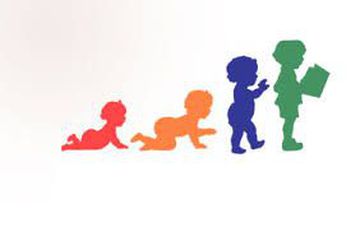Significance Of First 5 Years Of Life
Being based in Delhi, my 4-year old does not have the liberty to live the fantasy of sitting on the beach and making sand castles. So she does that out of whatever mud and stones are available in the local park. Sometimes she uses the ground as a board to practice alphabets and making flawed pictures. As irksome as a sight of getting her coated in dirt, it is an equally pleasurable experience to see what masterpieces she creates out of her wide imagination packed in a tiny-looking head.
I have promised myself that I will not come in the path of my daughter’s freedom to express her physical or mental abilities as long as it is risk-free. If she does not want to draw or paint, I will not force her beyond the point it is absolutely necessary. If she selects martial arts over dance classes, I will stand by her. If later on, she does not want to become an engineer, even if she intellectually can, and takes up arts, even if I don’t like it, I will cheer her and push her to be the best in whatever she selects.
Like charity begins from home, right parenting begins from birth. Probably this is why first five years of a child are often considered foundation of his/her personality.
As stated by Carrie Lupoli (a parenting consultant), “We all have a goal, an intended destination with our children. But more often than not, we don’t actually have a map and we end up driving blindly and may not even realize we are in the wrong direction until it is too late.” According to experts, in early stages of life, the brain acts like a sponge; it simply absorbs what we pour into it. We give it fear, it reflects insecurity; we give it strength, it reflects confidence. Whatever we do, early experiences provide the base for the brain's organizational development and functioning throughout life. Therefore, these five years have to be utilized wisely for their brain development, emotional behavior as well as social behavior and communication skills. Whatever is the child’s stage, these three simple steps will assure a healthy upbringing:
- Interacting
Since the day a child is born, anyone who holds her tries to talk, whether or not the child understands. It is nothing but a way to make connection, connection to create the bond of trust and security. A baby is new to this world and sacred of totally new environment. It becomes parents’ duty to help the baby realize that it can also be a friendly and happy place. This happens through non-verbal form of interaction as well – Touch. Cuddle her, keep her close and listen to her needs, and she will start feeling more secure day by day.
Interaction does not end in infancy. It gets even more important in the growing years when your toddler becomes socially active, goes to new school, and starts various activities. When we talk to kids about the kind of day they had, there is a fair chance of them revealing many facts that otherwise may have gone unnoticed by adults. Hence, a significant part of interaction is listening patiently to their daily discoveries. This will not only make them learn patience from us, they will also start building trust in us as we empathize with them rather than pin-pointing their mistakes.
All good habits you need to inculcate will also be possible through talking, but assertive one. Tell them “It is meal time”, “We are keeping clothes in the cabinet”, “We will not touch the pan, it’s hot”.
- Engaging
A human being’s brain works at maximum pace till 5 years of age, before it begins to stabilize at age 6. Undoubtedly, this is the best time to engage kids in constructive activities that build strong foundation for their creative, social, and interactive self. Let them learn through play. Introduce them to variety of options to engage all their five senses – clay molding, cutting/pasting, playing music, etc. To make this process more fruitful, best we can do is to get involved in their games whether it is for guidance, encouragement or just to give company. Believe me they’ll simply enjoy your company.
However, at the end of the day, it’s their life. Once in a while, it is good to give them independence to decide what they would want to do at that moment.
Also, these years are the best to develop communication skills. Research says that a child can grasp at least four languages at a time. In fact, earlier the child starts learning; more chances are there to develop a natural native accent. So talk to them as much as possible irrespective of their age.
- Motivating
We all must acknowledge the fact that though young, our kids are separate individuals with unique qualities and weaknesses. Every child learns different things at different pace. And it becomes our responsibility to let them learn without being guilty of their speed. There’s a very thin line between encouragement and hastening. Our constant efforts to not cross that line will definitely yield positive results. Praise them even for the most non-perfect drawing they’ve made or for finishing their meal and see how they put in their best efforts next time to make you happier.
Adopt any method but keep in mind “Your perspective on life comes from the cage you were held captive in”
By Deeksha Monga













